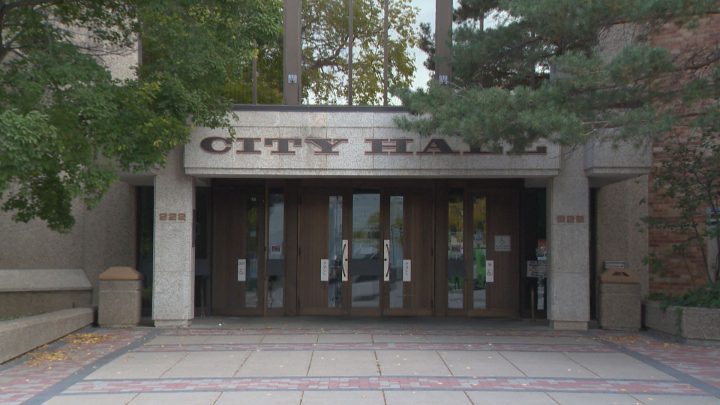Even with the province’s plan to reopen Saskatchewan, the City of Saskatoon warns not much will change anytime soon.

“We are still under a provincial state of emergency, that has not changed,” said Pamela Goulden-McLeod, director of emergency management for the city, during a Zoom press conference Friday afternoon.
The city is reminding residents to keep practicing social distancing, continue to wash their hands and follow the province’s public health order.
The COVID-19 pandemic has left the city facing a few potential deficits, from $20.2 million to just under $43 million for 2020, according to a city report published Friday.
It depends when restrictions are lifted and how quickly services like transit, which make the city money, are running back to normal.
The city estimates a deficit of approximately $20.2 million if restrictions are lifted June 30, approximately $32 million if lifted Sept. 30, and approximately $42.9 million if lifted on Dec. 31.
“Really it’s going to depend largely on can we get this COVID in a box and can we get it contained,” said city manager Jeff Jorgenson.
Some of the losses stem from things like public transit being free where it previously brought in $35,000 a day, along with parking meter revenue which brought in $21,000 per fare day.
“It is very likely that there will be longer lasting impacts that go beyond the current year,” warns the city in its report.
One reason: even when buses, pools and leisure centers reopen as normal, Jorgenson said it’s unclear when the city will see the same volume of people accessing these services as before the pandemic.
The sooner restrictions are lifted, the sooner the city can start making money from these services again.
The city is proposing several solutions, including cuts to some services, and a freeze on hiring or training staff.
It’s also seeking funding from the federal government, part of the call from the Federation of Canadian Municipalities for $10 billion in emergency operating money for local governments.
Jorgenson said the city won’t reopen completely until at least phase four of the provincial plan. A date for that phase has not yet been determined.
Meanwhile, one concern still for the city is getting the homeless into housing.
The city made the call April 1st for the provincial government to act quickly in helping the city’s most vulnerable.
Since then some initiatives have moved forward, including putting some people up in hotels to self-isolate while waiting for test results.
The problem is once their tests come back negative, they’re sent right back on the street.
“If we see COVID get into the homeless population, that’s one of the things that could absolutely set back our success,” warned Mayor Charlie Clark.
The Saskatchewan Housing Authority has opened 10 units to help people with housing.
“They’ve been available for at least two weeks, but there hasn’t been the ability to get through some of the regulations and policies to get people housed,” explained Clark.
He said they need to find housing long-term for the homeless to help contain the virus.
Questions about COVID-19? Here are some things you need to know:
Health officials caution against all international travel. Returning travellers are legally obligated to self-isolate for 14 days, beginning March 26, in case they develop symptoms and to prevent spreading the virus to others. Some provinces and territories have also implemented additional recommendations or enforcement measures to ensure those returning to the area self-isolate.
Symptoms can include fever, cough and difficulty breathing — very similar to a cold or flu. Some people can develop a more severe illness. People most at risk of this include older adults and people with severe chronic medical conditions like heart, lung or kidney disease. If you develop symptoms, contact public health authorities.
To prevent the virus from spreading, experts recommend frequent handwashing and coughing into your sleeve. They also recommend minimizing contact with others staying home as much as possible and maintaining a distance of two metres from other people if you go out.
For full COVID-19 coverage from Global News, click here.



Comments